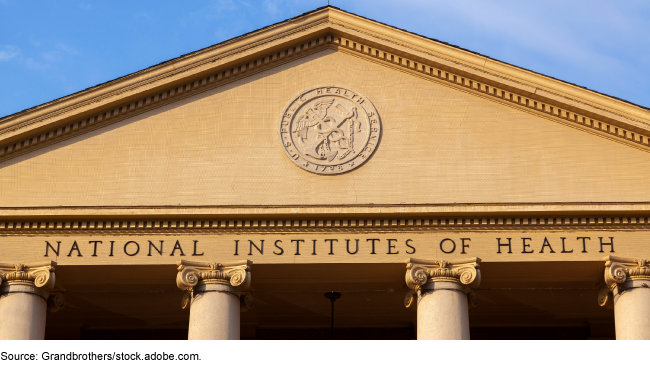Federal Research: NIH Could Take Additional Actions to Manage Risks Involving Foreign Subrecipients
Fast Facts
Federal agencies can fund research through grants or other agreements with foreign entities such as universities and labs. Such collaborations can lead to scientific advancements, but there are concerns about certain countries exploiting this research to harm the U.S.
We reviewed federal funds that agencies directly or indirectly awarded to 3 Chinese research institutions. Most of the money came from awards funded by the National Institutes of Health.
NIH's oversight didn't always ensure that foreign institutions complied with award terms and conditions—which can include biosafety requirements.
We recommended improving oversight of such awards.

Highlights
What GAO Found
All three of the selected Chinese entities GAO was asked to provide information on, received research funds in calendar years 2014 through 2021, whether directly through a federal award or indirectly through subawards to carry out part of the work of a federal award. Specifically, the National Institutes of Health (NIH) provided $200,000 in grant funding to Wuhan University, the only selected Chinese entity to receive funding directly from a federal agency. However, all three selected entities collectively received seven subawards, totaling over $2 million, from federal award recipients or a first-tier subrecipient (see figure).
Awards and Subawards Identified to Three Selected Chinese Entities, Calendar Years 2014-2021

Note: The figure may not reflect all funding to the selected entities in the time period reviewed due, in part, to limitations in federal reporting requirements.
Federal agencies and award recipients described efforts to assess risks, but gaps exist in NIH's risk assessment efforts. In January 2023, the Health and Human Services Office of Inspector General recommended that NIH implement enhanced monitoring, documentation, and reporting requirements for award recipients with foreign subrecipients. To address this recommendation, NIH noted it may need additional authorities and plans to explore government-wide practices, which will take time. However, federal internal controls require that agencies take timely corrective actions to address risks. While NIH pursues long-term actions for award recipients, it has not conducted its own near-term assessments, which could enhance its internal oversight.
Why GAO Did This Study
Federal agencies sometimes provide funds to foreign entities, such as universities and laboratories, for research or other purposes. Such collaborations can benefit agency missions and lead to advancements in areas such as public health. At the same time, Congress, the White House, and others have expressed concerns about entities from countries, such as China, exploiting U.S. funded research in ways that could harm U.S. national security or economic competitiveness.
GAO was asked to provide information on federal funds disbursed to three selected Chinese entities—Wuhan University; the Wuhan Institute of Virology; and the Academy of Military Medical Sciences.
This report examines, among other things, the amount of federal funding GAO identified that was provided to the three selected Chinese entities in calendar years 2014 through 2021 and steps agencies and award recipients have taken to assess risks.
GAO searched USAspending.gov and other federal databases and reviewed award agreements, progress reports, payment information, and other documents from federal agencies and U.S.-based award recipients. GAO also interviewed federal officials and the U.S. award recipients.
Recommendations
GAO is recommending that NIH evaluate and, as appropriate, implement actions—such as changes to its internal processes—to more quickly improve its oversight of awards with foreign subrecipients. The agency concurred with the recommendation.
Recommendations for Executive Action
| Agency Affected | Recommendation | Status |
|---|---|---|
| Department of Health and Human Services | 1. We recommend that the Secretary of HHS ensure that NIH timely assesses and, as appropriate, implements actions—such as changes to its internal processes—that would allow NIH to more quickly improve its oversight of awards involving foreign subrecipients. |
When we confirm what actions the agency has taken in response to this recommendation, we will provide updated information.
|
